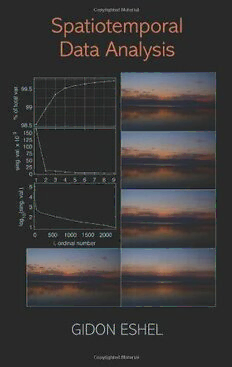
Spatiotemporal Data Analysis PDF
336 Pages·2011·6.655 MB·English
Most books are stored in the elastic cloud where traffic is expensive. For this reason, we have a limit on daily download.
Preview Spatiotemporal Data Analysis
Description:
A severe thunderstorm morphs into a tornado that cuts a swath of destruction through Oklahoma. How do we study the storm's mutation into a deadly twister? Avian flu cases are reported in China. How do we characterize the spread of the flu, potentially preventing an epidemic? The way to answer important questions like these is to analyze the spatial and temporal characteristics--origin, rates, and frequencies--of these phenomena. This comprehensive text introduces advanced undergraduate students, graduate students, and researchers to the statistical and algebraic methods used to analyze spatiotemporal data in a range of fields, including climate science, geophysics, ecology, astrophysics, and medicine. Gidon Eshel begins with a concise yet detailed primer on linear algebra, providing readers with the mathematical foundations needed for data analysis. He then fully explains the theory and methods for analyzing spatiotemporal data, guiding readers from the basics to the most advanced applications. This self-contained, practical guide to the analysis of multidimensional data sets features a wealth of real-world examples as well as sample homework exercises and suggested exams.
See more
The list of books you might like
Most books are stored in the elastic cloud where traffic is expensive. For this reason, we have a limit on daily download.
